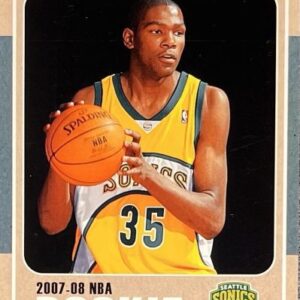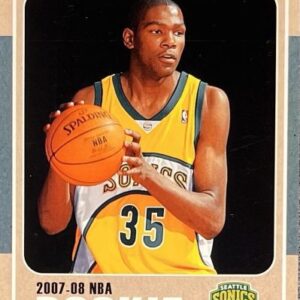Every once in a while, a scandal emerges that sends ripples through its entire industry, prompting self-reflection and, consequently, reform. This week, the realm of sport collectibles was rocked—or should we say, slammed—by the gripping saga of Brett Lemieux, a man whose name may now be etched in infamy rather than cherished in collectible gold frames. With a knack for deception that would make even a seasoned poker player green with envy, Lemieux helmed a colossal counterfeit operation that has fundamentally altered the memorabilia landscape.
The tragedy unfolded in Westfield, Indiana, under a cloud of police intervention. Amidst the chaos of a police raid targeting a counterfeit memorabilia empire, Lemieux met his end through a self-inflicted gunshot wound. This dramatic final act, unfolding as officers executed a search warrant, marked a grim climax to an elaborate fraud reportedly concealing millions of faux sports merchandise under the guise of legitimacy. While the Hamilton County Coroner’s Office withholds the official cause of death, the circumstances surrounding his demise add an additional layer of intrigue and melancholy.
The plot began to unravel publicly when an astonishing confession, puppet-mastered into the digital void of the “Autographs 101” Facebook group, emerged from Lemieux himself. If the post is to be believed, we’re talking about more than four million tainted relics dressed up as authentic gems of sporting history, trickling into unsuspecting hands with an alleged value soaring to $350 million. As the revelation echoed through the autograph community, it jolted collectors and insiders alike, throwing a once-glorious pedestal of trust into a potential house of cards.
Operating under the alias Mister Mancave—an ironic title if there ever was one—Lemieux claimed dominion over “the largest framed jersey inventory on the web.” Though headquartered, theoretically, in Columbus, Ohio, one could search endlessly without stumbling upon an actual store. Merely incorporating in Indiana on two occasions fringed his corporate ink with legal semblance, but the enterprise was more smoke than substance.
Lemieux’s confession unveiled the uncanny precision of his fraudulent artistry. Central to his deceptive tableau were counterfeit hologram stickers—designed so elegantly that they tricked even the wiliest of eyes. These stickers were shameless forgeries of those employed by major authentication titans like Panini and Fanatics. A key moment for the operation came with the passing of NBA legend Kobe Bryant in 2020. According to Lemieux’s afterword, a staggering 80,000 counterfeit Bryant items—authenticated by deceitful stickers—marched into the market, forever intermingling the genuine with the faux.
Turning the gaze from basketball to baseball, Lemieux’s inventory extended to items like a purportedly Aaron Judge-signed baseball, replete with a counterfeit Fanatics hologram. Offered at $399, it was scandalously undercut from the authentic $699 price tag, charming yet hoodwinking enthusiasts all the while.
Caught in this whirlwind of forgery, the reputable panels of authentication firms and sports memorabilia sellers are now scrambling to recalibrate. Aware of the sophisticated methodologies like autopens that aid such intricate forgery, Fanatics, a significant name in the field, has re-engineered its hologram technology and now collaborates constructively with law enforcement and specialized fraud experts, including former FBI agents. Their communal objective: rebuild the cracked foundation of trust within the valuables corridor.
The audacious figures Lemieux publicized invite skepticism. Can the world truly believe in the gravity of $350 million in cunning sales? While doubters abound—some outright dismissing the notion as implausible—everyone agrees on one sobering reality: the industry’s credibility has been severely dented.
Steve Grad, a venerated name in autograph authentication, underscores the challenges posed by burgeoning forgery technologies. This scandal, he assures, won’t just be a cautionary tale for today; it’s a legacy that will shadow the industry for years to come.
In a market where dreams are neatly encased within signed memorabilia and framed jerseys, some claim they had insights into Lemieux’s duplicitous dealings. Unnamed sources recount suspicions about the wide assortment of autographs Lemieux peddled—allegedly those signed by athletes long estranged from public appearances. Notably, Dominique Ball from Indiana and Nickolas Litscher from Wisconsin, implicated in Lemieux’s post-mortem manifesto, have categorically distanced themselves, with Litscher even gearing up for legal avenues to unsully his reputation.
Yet, authorities remain convinced Lemieux orchestrated his deception from a labyrinthine web of business fronts, spanning aliases like Ultimate Sports, Athletes One, Signature Dog, and All-American Authentics.
Amidst the scandalous ashes, collectors are left sifting through hopes and doubts, wondering if their prized possessions are genuine relics or mere semblances thereof. This unfolding tale is a stark reminder—a wake-up call—that the world of sports memorabilia, cloaked in dreams and nostalgia, demands vigilance. Without it, the heart behind every cherished autograph threatens to beat softly into obscurity.





